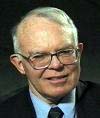The Argument from DesignThe Argument from Design is really an argument to divine design from alleged signs of it. The idea is that the cosmos, as we can see by examining it, was selected for creation to serve a divine purpose, a purpose at least partially understandable because it is good. Leibnizian richness does enter into most people’s thoughts about goodness; it is believed that a cosmos serving a divine purpose would have beauty, grandeur, et cetera; but more basic, typically, is the belief that the cosmos would be good through containing intelligent living beings. I think that makes excellent sense. Suppose, controversially, that God is to be understood as an immensely powerful person, and that any cosmos that this person created would be entirely outside him. Now, what if he had designed the cosmos so that no life would evolve in it? What if he had designed it just for its beauty and grandeur, which he alone could appreciate since nobody else would exist? Would that not make him rather a simpleton, somebody who would have actually to create his cosmos before he could properly appreciate the idea of cosmic beauty and grandeur, instead of just contemplating such beauty and grandeur in his mind’s eye? Would he not have created something that was worthless in itself, since its only value would lie in something outside it, namely, his experience of looking at its structure? While the philosopher G. E. Moore wrote in his Principia Ethica (1903) that something could be intrinsically good merely through being beautiful, there being no need for anyone to exist to appreciate the beauty, this seems to me wrong, and in later writings Moore, too, came to think it wrong. He came to define the intrinsically good as what was worth having in the sense in which an experience is had. In a cosmos without living things clever enough to be worth calling observers, there would be nothing intrinsically good. So if a deity who is not rather a simpleton is to create a cosmos entirely outside himself, then that cosmos must contain intelligent life.
Contributed by: Dr. John Leslie |





